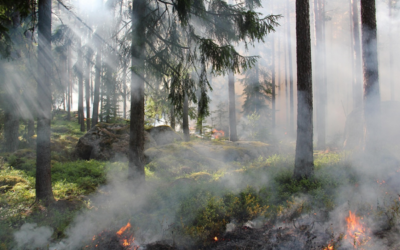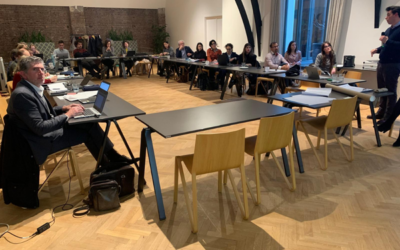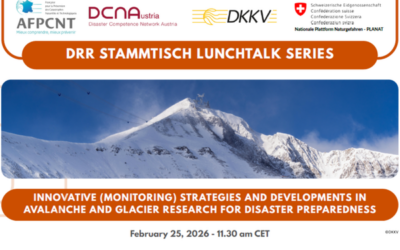The DKKV is…
German Committee for Disaster Reduction e.V. (ger.: Deutsches Komitee Katastrophenvorsorge e.V.)
Newsblog
CEDIM report on landscape fires in south-central Chile published
The CEDIM – Center for Disaster Management and Risk Reduction Technology has published a new forensic disaster report on the landscape fires in south-central Chile in January 2026. The report analyzes the fires in the regions of Biobío, Ñuble, and La Araucanía, which...
European Commission plans integrated framework for climate resilience and risk management
The European Commission is currently developing a comprehensive European Climate Resilience and Risk Management Integrated Framework to strengthen climate resilience and risk management across the EU. The aim of the framework is to create an ambitious, coherent, and...
AHEAD Mid‑Term Meeting and Joint Open Day with SOTERIA Brought Stakeholders Together in Brussels
On 26 January 2026, the AHEAD consortium convened for an internal, in‑person alignment meeting at Maison de la Poste in Brussels to prepare for the stakeholder sessions. Partners presented and discussed the project status, agreed on concrete next steps to finalize...
DRR Stammtisch Lunchtalk: Innovative Monitoring Strategies in Avalanche and Glacier Research for Disaster Preparedness
On 25 February 2026, at 11:30 a.m. (CET), a new session of the DRR Stammtisch Lunchtalk Series will take place, focusing on innovative monitoring strategies and recent developments in avalanche and glacier research for disaster preparedness. This online event is...
Follow us




What is disaster risk reduction?
Storms, natural hazards and extreme events can quickly become a danger to people and the environment. But climate change, extreme urbanization, power outages and fires also offer potential hazards.
A disaster occurs when the functioning of a community or society is impaired or interrupted and, as a result, high human, material, economic and ecological losses occur that cannot be managed alone.
Precautionary measures can help to reduce the consequences and impact of the disaster. Depending on the hazard and personal circumstances, the precautionary measures to be taken may vary.
Find out more about potential hazards and individual precautionary measures on our topic pages.






